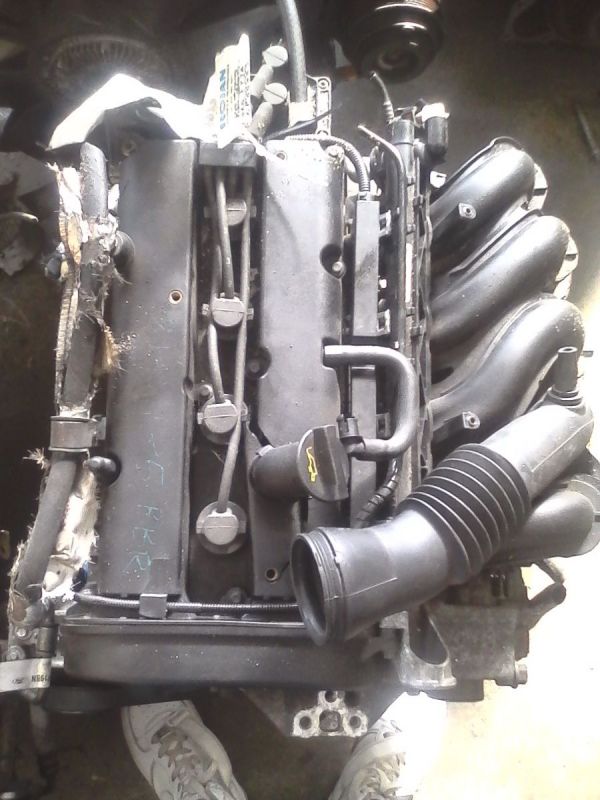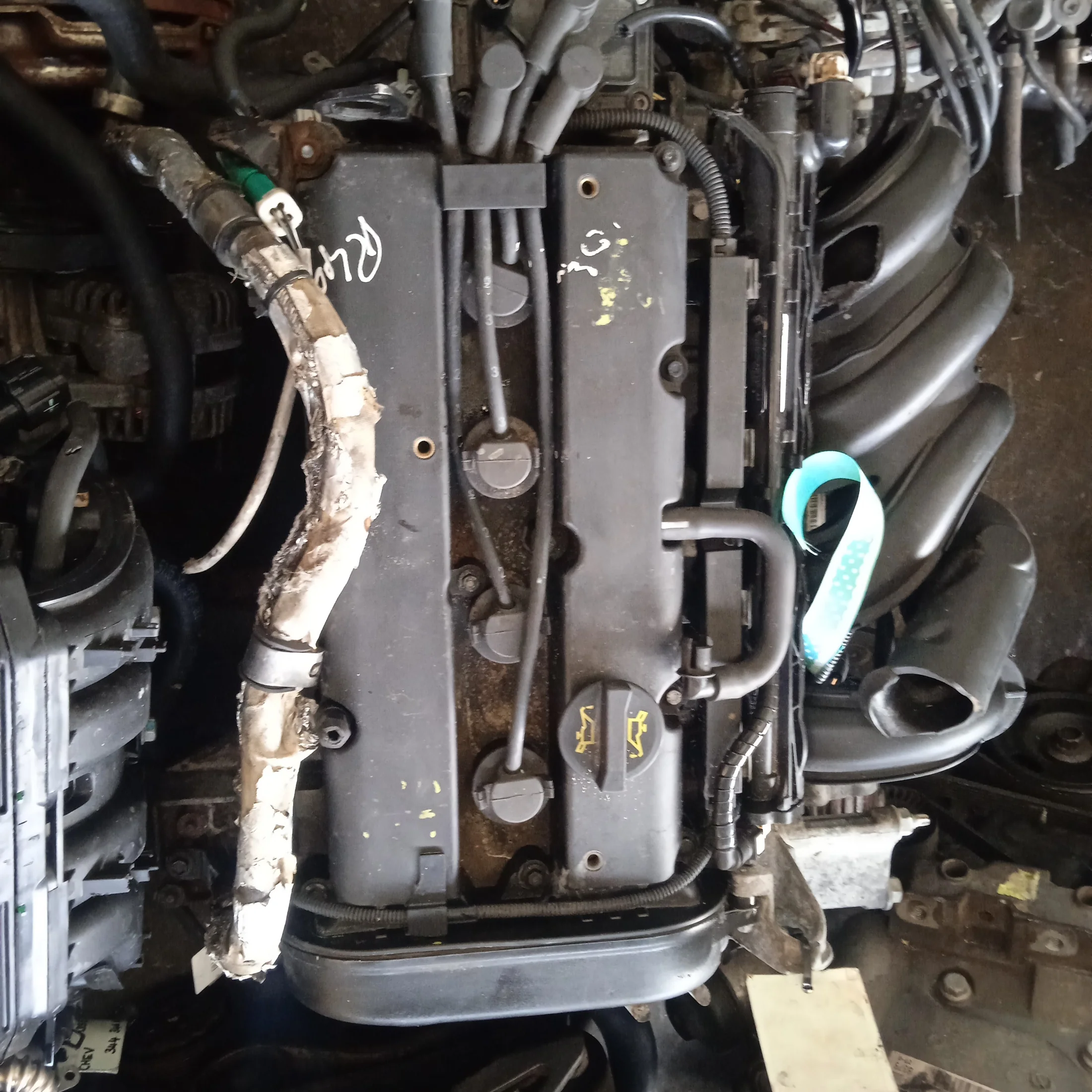Essential Services for Keeping Your Ford Fiesta Engine in Peak Condition
Essential Services for Keeping Your Ford Fiesta Engine in Peak Condition
Blog Article
The Future of Engines: Advancements Driving Sustainable Power Solutions
As the automobile sector browses the imperative transition towards sustainability, the future of engines is increasingly defined by groundbreaking advancements. Electric engine developments, alongside encouraging advancements in hydrogen fuel cells and biofuels, are reshaping the landscape of power solutions.
Electric Engine Advancement
The evolution of electrical engine advancements represents a critical change in the automotive and aerospace sectors, driven by the urgent need for sustainable options to fossil gas. This change is characterized by substantial improvements in battery innovation, power electronics, and electrical motor style, which jointly improve the effectiveness and efficiency of electric engines.
Current technologies have actually resulted in the production of lighter, extra energy-dense batteries, such as lithium-silicon and solid-state batteries, which assure longer ranges and shorter charging times. Furthermore, renovations in electric motor performance, such as using permanent magnets and progressed cooling down systems, allow electric engines to operate properly under differing conditions. These improvements not just enhance automobile performance but likewise add to a reduction in overall power intake.
Additionally, the combination of sophisticated software program algorithms has actually optimized power management in electrical vehicles, enabling regenerative braking and anticipating billing strategies. As manufacturers progressively accept electric propulsion, the aerospace and vehicle industries are observing a standard change towards greener modern technologies. This advancement not only satisfies governing demands yet also lines up with customer choices for ecologically friendly transportation options, strengthening electrical engines as a cornerstone of future lasting movement.
Advancements in Biofuels
As the aerospace and vehicle markets increasingly prioritize sustainable energy sources, innovations in biofuels arise as a complementary solution to electric engines. Biofuels, originated from organic products such as crops, waste, and algae, provide a cutting-edge opportunity for minimizing greenhouse gas emissions and dependence on nonrenewable fuel sources.
Recent research has concentrated on boosting the performance and sustainability of biofuel manufacturing. Second-generation biofuels make use of non-food feedstocks, decreasing competition with food supply and reducing ecological influence. Innovations in synthetic biology have actually allowed the design of microbes to create biofuels more effectively, leading to greater yields and lower production prices.
Additionally, the advancement of drop-in biofuels allows for smooth integration right into existing framework, allowing a smoother shift for markets commonly based on nonrenewable fuel sources. ford fiesta engine. These fuels can be utilized in current engines without modifications, facilitating their adoption across various sectors
Investments in biofuel innovation, in addition to encouraging plans, are necessary to drive technology and scalability. As the global community seeks to fight climate adjustment, biofuels offer a practical, instant service that aligns with the overarching goal of sustainability in transport and aviation.
Hydrogen Gas Cell Modern Technology
An expanding number of companies and researchers are discovering hydrogen fuel cell technology as a viable option to traditional source of power in transport and energy systems. This innovation transforms chemical power from hydrogen into electrical power via an electrochemical reaction, with water as the only byproduct, making it an eco pleasant option.
The core of hydrogen gas cells is the gas cell stack, where hydrogen particles are split into protons and electrons. The circulation of electrons creates power, while protons move through a membrane layer to combine with oxygen from the air, creating water. This process leads to high efficiency and reduced exhausts, placing hydrogen fuel cells as an important player in the shift to sustainable energy.
Considerable developments have been made in boosting the durability and efficiency of gas cells, alongside decreasing prices via ingenious manufacturing techniques. The growth of hydrogen production methods, such as electrolysis powered by eco-friendly energy resources, boosts the sustainability of the general system. As infrastructure for hydrogen refueling expands and manufacturing techniques become much more reliable, hydrogen fuel cell technology holds terrific promise for decarbonizing numerous markets, including heavy-duty transportation and stationary power generation.
Crossbreed Systems and Their Influence
Crossbreed systems stand for a significant evolution in sustainable engine innovation, combining standard internal burning engines with electric propulsion to optimize power performance and reduce emissions (ford fiesta engine). This twin strategy allows lorries to make use of both source of power, enabling greater versatility in energy consumption and decreasing dependence on nonrenewable fuel sources

In enhancement to ecological benefits, hybrid systems supply consumers a feasible shift in the direction of fully electrical lorries. They reduce array stress and anxiety by incorporating the benefit of gasoline with the benefits of electrical propulsion, making them an eye-catching choice for a broader target market.
The Role of AI in Engine Layout
Leveraging sophisticated click formulas and device learning strategies, the vehicle sector is progressively incorporating expert system (AI) into engine layout processes. AI enhances the effectiveness and effectiveness of layout by examining huge datasets to identify ideal configurations and performance parameters. This capability enables engineers to simulate different operating conditions and anticipate engine actions under multiple situations, dramatically minimizing the time and cost connected with traditional prototyping techniques.
Moreover, AI promotes the growth of sophisticated materials and burning processes tailored for sustainability. By optimizing fuel effectiveness and decreasing exhausts, AI-driven styles align with worldwide campaigns targeted at minimizing the carbon footprint of automotive engines. Artificial intelligence algorithms can also predict upkeep needs, causing enhanced reliability and longevity of engine elements.
Moreover, AI is critical in the combination of electrification technologies, such as hybrid systems, where it can maximize battery monitoring and power recovery processes. As the sector relocates towards more lasting power look at this website options, the function of AI in engine style becomes progressively crucial, driving advancement and improving the efficiency of future engines. Inevitably, the cooperation in between AI and engine design advertises a brand-new period of smarter, cleaner, and a lot more effective automobile innovations.

Verdict
To conclude, the future of engines is being shaped by a merging of innovative innovations that focus on sustainability. Electric engine advancements, biofuel advancements, hydrogen fuel cells, and crossbreed systems jointly add to a significant decrease in emissions and environmental influence. Additionally, the integration of man-made knowledge in engine style enhances effectiveness and performance. These transformative solutions underscore a commitment to producing a cleaner, much more lasting automotive landscape, ultimately benefiting both society and the setting.
Electric engine innovations, alongside promising advancements in hydrogen gas cells and biofuels, are reshaping the landscape of power options. Furthermore, improvements in electric motor performance, such as the usage of permanent magnets and progressed cooling down systems, enable electric engines to operate efficiently under varying problems. By enhancing fuel efficiency and reducing exhausts, AI-driven styles straighten with global efforts intended at decreasing the carbon footprint of automotive engines. As the industry relocates in the direction of more sustainable power services, the function of AI in engine layout comes to be increasingly important, driving development and boosting the efficiency of future engines. Electric engine advancements, biofuel growths, hydrogen fuel cells, and crossbreed systems jointly add to a significant reduction in discharges and environmental impact.
Report this page